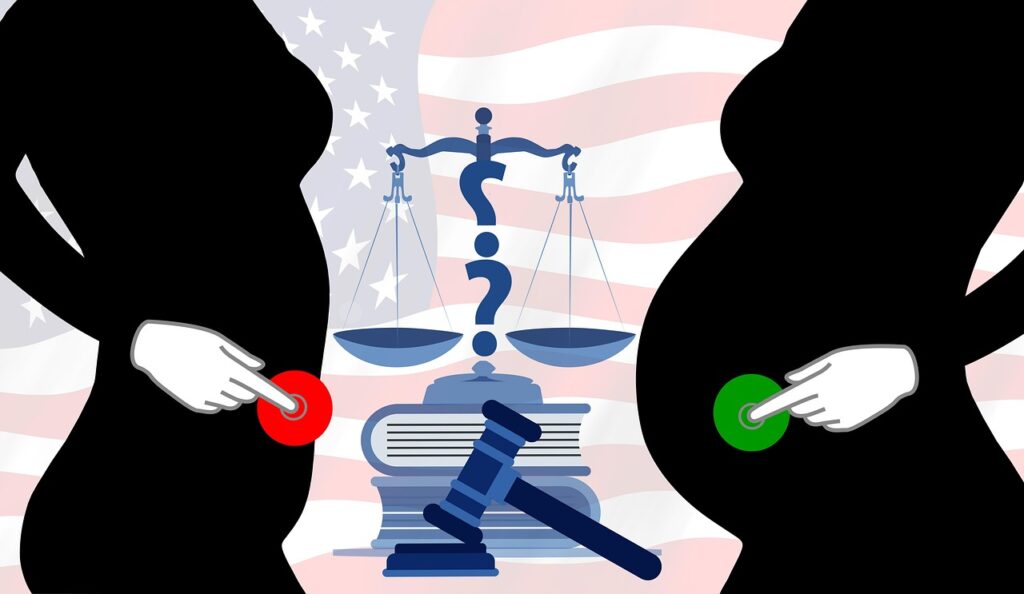One of the most convincing arguments for the right to an abortion by the left are the two exceptions, abortion in cases of rape and incest. Many pro-life advocates struggle to answer the powerful emotional appeal.
According to Johnston’s Archive, which compiles state-level data from official health departments, of all the reasons for abortion in the United States, 1% for rape and 0.03% for incest.
Rape and incest are horrible situations. There may be no greater act of injustice that can be committed against the vulnerable. This article will lay out the conservative argument against abortion in these difficult cases, so pro-life supporters cannot be pressured into conforming and surrendering their convictions.

In This Argument:
- While many pro-choice advocates argue from a place of real compassion and pain, they often miss one crucial thing
- Why the unborn still have a right to life
- What we must do to help both the woman and the child
Table of Contents
The Pro-Choice Argument: Trauma
Pro-choice advocates often focus completely on the mother, the victim of rape or incest, and her trauma. There are a few arguments that these pro-choicers usually state:
- The mother shouldn’t have to bear the responsibility of the rapist’s child.
- Half the baby’s DNA comes from the rapist.
- Carrying the baby may add trauma to the mother.
- The mother has a right to bodily autonomy.
These are not heartless arguments from pro-choice advocates, and most of them come from a place of real pain. In doing so, they overlook a deeper truth:
Trauma and bodily autonomy are real, and they must be taken seriously. But so is the moral worth and the right to life of the unborn human being. The question isn’t just how a pregnancy began, but whether the child conceived deserves protection.
The Pro-Life Response: Compassion Without Compromise
In the horrible situation of rape or incest, it can be difficult to rebut such an emotionally charged pro-choice argument. But in order to be consistent, logical, and most importantly moral, we must. The last thing that we want to do is to compound evil with more evil.
That’s the crux of the conservative argument. It’s very important to love and support women that experience sexual assault or incest, and rapists should be punished, but why is it then just to punish the baby for the sins of the father?
Babies conceived in rape or incest don’t get less human rights just because of how they were conceived. They don’t lose their humanity because of the sins of their father. Two wrongs do not make a right.
If it’s true that the fetus inside of a woman is a human life at fertilization, then it is wrong to abort that child, no matter how that child was conceived.
Read More – Does Life Begin at Conception? – The Undeniable Science Behind the Abortion Debate
Being a victim of rape or incest and carrying that pregnancy is very likely traumatic for the mother. It’s important that that’s not forgotten. But let’s look at a hypothetical:
If a woman is receiving help to deal with her trauma and has given birth to her baby, but then suddenly gets trauma when the baby is 2 years old, is it then OK for the woman to kill the baby? Any reasonable person would say a resounding no.
Yes, a fetus and a toddler differ in location and dependence, but moral worth should not hinge on geography or self-sufficiency.
WATCH: Mike Adams of Cross Examined addresses the rape exception brilliantly:
In short, being conceived in rape or incest doesn’t invalidate someone from being human. We should do everything in our power to help both the woman and the child while punishing the father.
In the face of evil, we don’t erase life, we uphold it. True justice defends both the mother and the innocent life growing within her.
The Bottom Line:
- While many pro-choice advocates argue from a place of real compassion and pain, they often miss the right to life that the child in the womb has.
- It’s important to love and support victims and preserve the right to life of the unborn.
- We should do everything in our power to help both the woman and the child while punishing the father.
